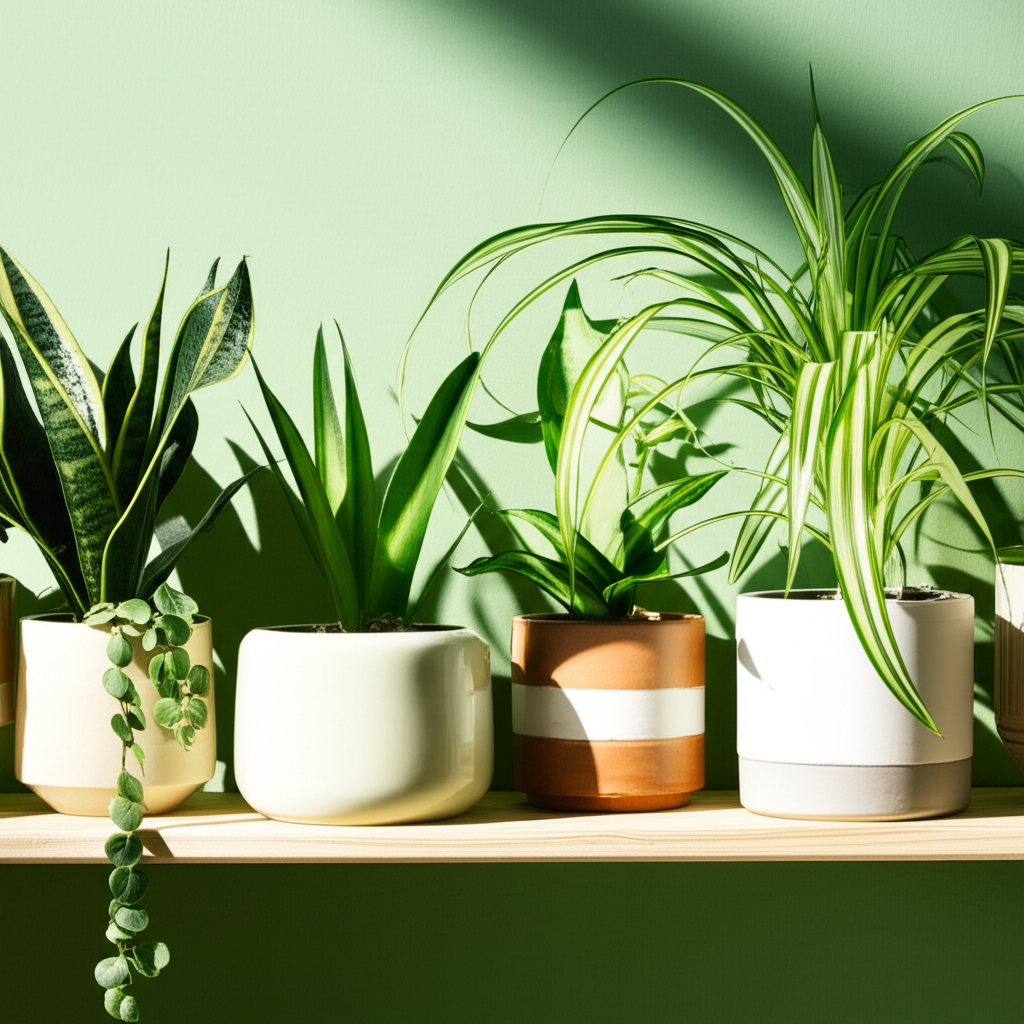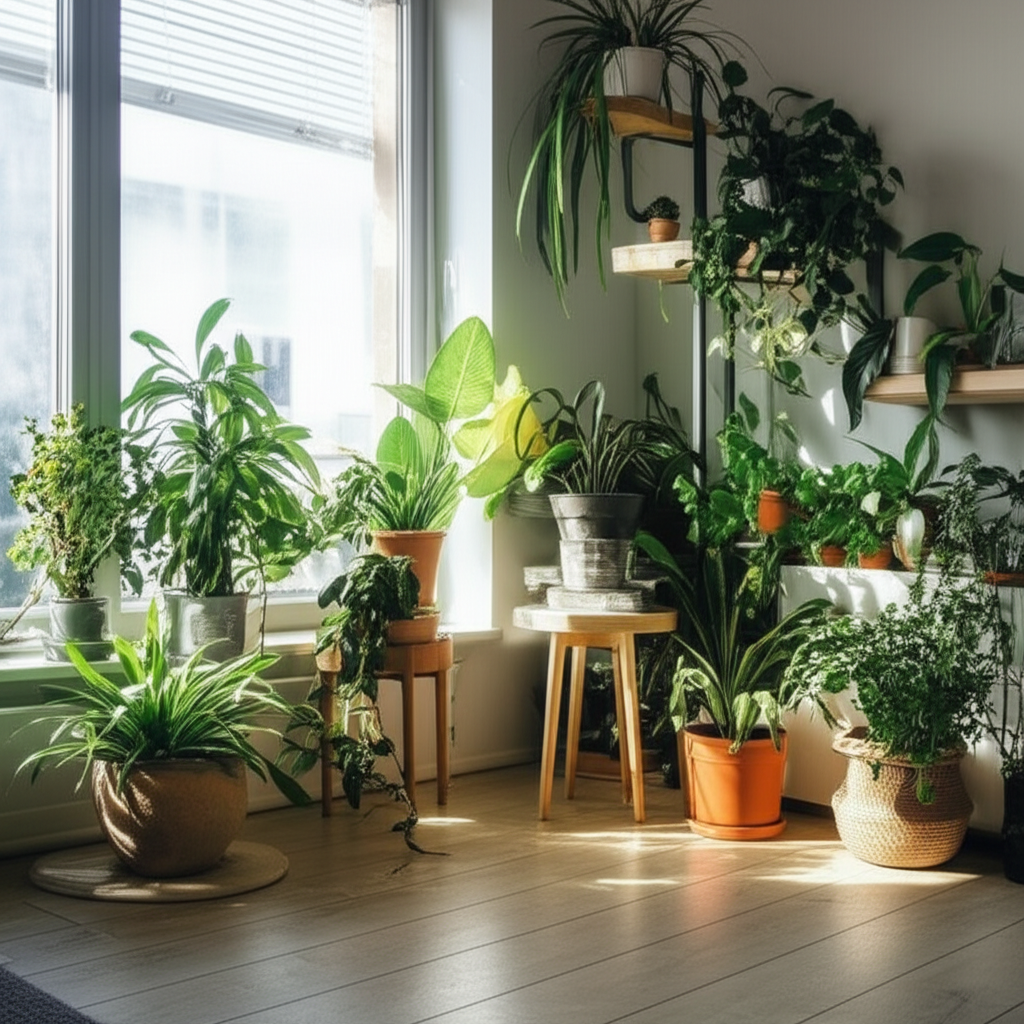Top 10 Allergy-Friendly Houseplants
Breathe easier with these beautiful, low-allergen indoor plants

Introduction
For allergy sufferers, choosing the right houseplants can make a significant difference. Some plants can purify the air without triggering allergies, creating a healthier indoor environment while still enjoying the benefits of indoor gardening.
Top Picks
1. Peace Lily
Known for its air-purifying qualities and low pollen production, the Peace Lily is an excellent choice for allergy sufferers. This elegant plant with its distinctive white flowers not only looks beautiful but also helps remove common indoor pollutants like benzene, formaldehyde, and trichloroethylene from the air.
2. Snake Plant
The Snake Plant, also known as Mother-in-Law's Tongue, releases oxygen at night and removes toxins like formaldehyde and nitrogen oxide from the air. Its vertical, structured growth makes it perfect for small spaces, and it requires minimal care, making it ideal for busy allergy sufferers.
3. Areca Palm
The Areca Palm acts as a natural humidifier and effectively purifies the air. It's particularly effective at removing formaldehyde, xylene, and toluene from indoor environments. With its feathery, arching fronds, it adds a tropical touch to any room while being gentle on allergy-prone individuals.
4. Dracaena
Dracaena plants filter airborne toxins effectively, particularly benzene, formaldehyde, and trichloroethylene. With over 40 different varieties, there's a Dracaena to suit any home décor. These plants are particularly effective at cleaning the air and don't produce significant allergens.
5. Spider Plant
Spider Plants are easy to care for and excellent at removing pollutants like formaldehyde and xylene. They produce oxygen while purifying the air and are safe for pets. Their cascading foliage with baby plantlets makes them visually appealing while being non-allergenic.
6. Boston Fern
Boston Ferns act as natural air humidifiers and remove formaldehyde from the air. They thrive in humid environments, making them perfect for bathrooms. Unlike some other ferns, Boston Ferns don't produce spores that can trigger allergies.
7. Bamboo Palm
The Bamboo Palm is excellent at filtering benzene, formaldehyde, and trichloroethylene. It thrives in shady indoor spaces and adds a touch of tropical elegance. This palm variety is particularly good for allergy sufferers as it doesn't produce pollen or other common allergens.
8. Rubber Plant
Rubber Plants are effective at removing formaldehyde from the air and have low allergen properties. Their glossy leaves are easy to clean, preventing dust buildup that can trigger allergies. These hardy plants are also relatively easy to care for.
9. Chinese Evergreen
Chinese Evergreens are excellent air purifiers that remove benzene and formaldehyde. They're incredibly adaptable to different light conditions and are perfect for beginners. Their low pollen production makes them suitable for allergy sufferers.
10. Gerbera Daisy
While many flowering plants can trigger allergies, Gerbera Daisies are an exception. They're effective at removing benzene and trichloroethylene from the air. Their bright, cheerful blooms add color to your space without causing allergic reactions for most people.
Care Tips

To maximize the benefits of these allergy-friendly plants while minimizing any potential issues, follow these care guidelines:
- Ensure proper ventilation in rooms with plants to prevent excess humidity that could lead to mold growth.
- Avoid overwatering, as standing water can become a breeding ground for mold and bacteria that might trigger allergies.
- Regularly dust plant leaves with a damp cloth to prevent dust accumulation, which can harbor allergens.
- Keep plants away from air vents and high-traffic areas to minimize dust distribution.
- Consider using a layer of decorative pebbles or aquarium gravel on top of the soil to reduce mold spores from the soil.
Conclusion
Incorporating these allergy-friendly plants into your home can significantly enhance indoor air quality without exacerbating allergies. They offer the perfect solution for allergy sufferers who want to enjoy the benefits of houseplants without the sneezing, itching, and other uncomfortable symptoms that some plants can trigger.
Remember that individual sensitivities vary, so introduce new plants one at a time and monitor for any reactions. With the right selection and proper care, you can create a beautiful, plant-filled home that supports your respiratory health rather than compromising it.